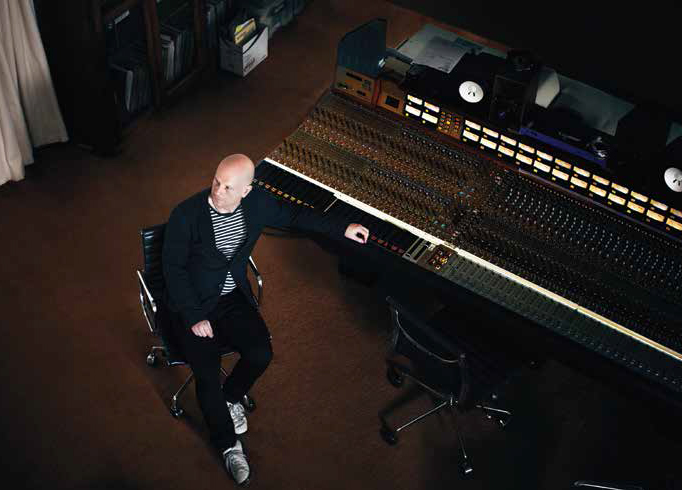Parting Shots: Philip Selway Talks Radiohead and _Weatherhouse_

Radiohead recently confirmed that they will return to the studio to work on their follow-up to 2011’s The King of Limbs, but fans of the forward-thinking English quintet won’t have to wait long to get a taste of what one of the band’s key members has been up to. Drummer Philip Selway released his second solo effort, Weatherhouse, on October 7, and it is a surprise departure from his 2010 debut, Familial. Not only does Selway describe Weatherhouse as “far more strident,” but the record also finds him rekindling his love of the drums, which he suggests may well alter his approach to Radiohead’s next album.
Weatherhouse feels a lot darker than Familial. Was there anything in particular that led to this change in tone?
With Familial, I was feeling my way through being a singersongwriter and just trying to find a singing voice that would work in that context. The arrangements grew around that singing voice. With Weatherhouse, I was using guide tracks as a starting point, but the actual fleshing out of a lot of the songs started with the drum kit. It started with me drumming.
So, straight away, you’ve got something that’s a lot more strident. I had an idea of where I wanted it to go lyrically, and I built the arrangements up from that basis. I had the themes that I wanted to write about, but then actually responded to what was going on musically. It did take it to an overall slightly darker spot. Lyrically, it’s not a million miles away from the voice that was on Familial. Familial is more of a gentle record. This one is far more strident.
You took a step back from the drum kit on Familial. What made you want to take up the instrument again for Weatherhouse?
When we initially talked about the drums, I still wasn’t entirely convinced that I wanted to do the drumming on it. But Adem [Ilhan], who produced the record, really pushed me to do it, and I’m pleased he did. With Familial, I couldn’t hear the drum parts at all. Then I worked with [Wilco drummer] Glenn Kotche, and just seeing what Glenn brought to the tracks was fantastic. He is such an amazing drummer. But with this album, I had already started the process of falling in love with playing drums again. We’d been out on the Radiohead tour for most of 2012, and as part of that, we had a double drummer setup—myself and a drummer called Clive Deamer. I found that exciting. That started to reignite my passion for drumming. I just found it very liberating. Drumming on this record was a lot of fun. I just felt a little freer to do what I could do on it, which was great.
Your solo career is a relatively new development. Did you always know you wanted to record your own music or did that impulse come more recently?
I always had the idea in the back of my mind. I thought I could write. I didn’t know whether I would sing on my records, but I hoped I would be able to. I took a leap of faith. It is one thing to write something, but it is another to then have the gall to try and put that across yourself.
I suppose when I first started making music and playing in a band, writing was part of what I did. Drumming has always been a special thing for me, but I did write songs initially, particularly when I first joined Radiohead. But with what we were doing with Radiohead, it was much more important for me to concentrate on my drumming in that context. The writing was taken care of nicely! [Laughs.]
But it was still wearing away in the back of my head that it was something I wanted to come back to at some point. I was writing all sorts of stuff—I had a lot of half-formed ideas. It was just making that next leap of faith and saying, “All right, I’m going to make a record.” Part of making the first record, Familial, was proving to myself that I could do it. Then, I thought, “Where do I take it next?” I was still writing, and I am still writing, so this feels like the next step of the process for me.
Do you plan to bring any of the new ideas that you developed with Weatherhouse to Radiohead’s next album when you return to the studio?
I guess I’ll try to bring the spirit of how I felt in those sessions to my drumming. When you start a project like Weatherhouse, you think, “How am I going to get there?” So you’ve got a lot of questions that you need to get answered, but then you get to the end of that process and you probably have more questions than you had at the beginning. They are the things that you take to your next project. There will be things you kind of touched on in a project like Weatherhouse where you’ll think, “That’s actually got a lot more scope there.” And I’ve just done another project where I was commissioned to do music for a Merce Cunningham Event from the Rambert Dance Company here in the U.K. For now, I could just immerse myself in a lot of drumming ideas. I’ve got a few.



















